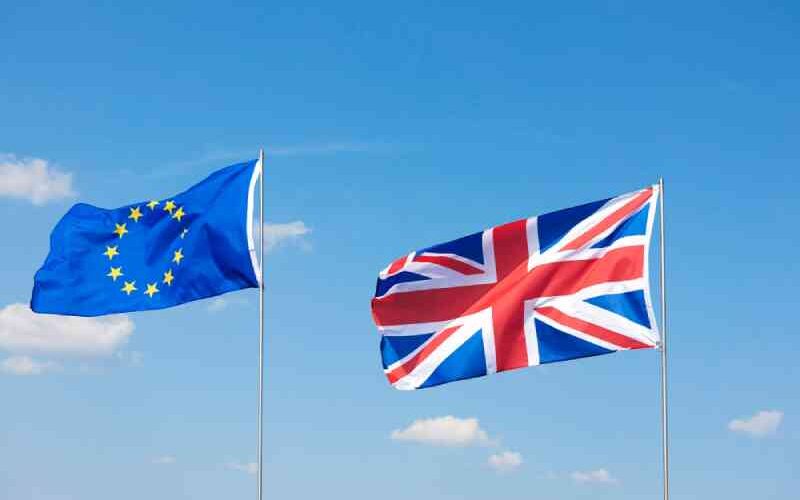What is the EU?
The European Union originated from a series of treaties signed after World War II, with the initial objective of promoting economic collaboration among countries to prevent conflicts. In 1958, the European Economic Community was established as a result of this, and it currently has 27 members (when the UK leaves in 2020). The European Union has built up a sizable single market throughout time, often known as the internal market, which is still expanding and changing (European Commission, 2012).
Many nations agreed that integration was required in the wake of the horrific battles that occurred among European nations, particularly during World War II. Coordination between the steel and coal industries was the starting point, and it later grew to include a larger variety of trade-related issues. However, navigating these various restrictions was very inefficient because each Western European nation had its own unique trade, immigration, and economic policies. In order to remove these obstacles to trade and the free flow of capital, products, services, and people between member states, the European Union was founded on the same principle as the states of the United States. The EU has thus played a crucial role in fostering steady economic growth and safeguarding regional stability (Chang, 2016).
What is Brexit?
In order to depict the result of the UK’s referendum on June 23, 2016, which led to the vote to leave the European Union (EU), the words “British” and “exit” were combined to form the term “Brexit.” At 11 p.m. At 1:00 a.m. on January 31, 2020, Brexit came into effect. Time in Greenwich. A preliminary free-trade agreement was signed between the UK and the EU on December 24, 2020, guaranteeing the unrestricted flow of goods. However, numerous crucial aspects of the forthcoming partnership are still unclear, including the trading of services, which constitute a substantial 80% of the United Kingdom’s economy. This agreement prevented a no-deal Brexit, which would have had a significantly negative impact on the UK. economy (Hayes, 2021).
Possible reasons
In this chapter, I aim to provide a critical review of the literature on Brexit and establish connections between different theories. My argument is that there are four main categories of explanation for Brexit, each containing multiple theoretical contributions. The first category is historical and identitarian explanations, which attribute Brexit to Britain’s discomfort with integration due to factors such as a lack of European identity, a Eurosceptic political and media elite, and a unique political history, culture, and geography. The second category is socio-political explanations, which focus on social changes in the UK and globally, including immigration, the “losers of globalization,” and a growing “value divide” and “cultural backlash” based on education, among other factors. The third category includes a range of explanations suggesting that the referendum vote was a stand-in for discontent over issues beyond the EU, such as opposition to austerity, anti-establishment sentiment, non-political psychological motivations, and English nationalism. The fourth category is proximate explanations, which center on the campaign itself, such as weaknesses in the Remain campaign and strengths in the Leave campaign. Although these categories are distinct, they share common strengths and weaknesses. Overall, I argue that while the literature on Brexit provides valuable insights, there are still gaps in our research (Dennison, 2023).
What does Europe think about the big Brexit moment?
Throughout the Brexit process, the European Union (EU) has expressed regret over the UK’s decision to leave and has maintained that the door is open for the UK to change its mind or reapply for membership in the future. The integrity of its single market is one of the objectives that the EU has been most adamant about safeguarding. The EU27 have all agreed that the UK cannot benefit from membership in the EU while breaking its laws. Due to the UK’s apparent unwillingness to accept the results of the referendum, its inability to come to an agreement on a Brexit plan, and the protracted parliamentary upheaval that followed, frustration has developed among the EU27. While some nations, like France, have adopted a stronger stance than others, others, like the Netherlands and Denmark, will suffer more from Brexit without a deal. Despite these divisions, the EU27 must remain together throughout negotiations on their future relationship because a weakened single market would have a much worse impact than a hard Brexit (Henley, Rankin, and O’Carroll, 2020).
Reference
Chang, A. (2016). Brexit: why Britain left the EU, explained with a simple cartoon. [online] Vox. Available at: https://www.vox.com/2016/6/24/12025514/brexit-cartoon [Accessed 3 May 2023]
Dennison, J. (2023). Why did the UK leave the EU? : the state of the science of explaining Brexit. [online] cadmus.eui.eu. Edward Elgar. Available at: https://cadmus.eui.eu/handle/1814/75247 [Accessed 3 May 2023]
European Commission (2012). The EU – what it is and what it does. [online] Europa.eu. Available at: https://op.europa.eu/webpub/com/eu-what-it-is/en/ [Accessed 2 May 2023]
Hayes, A. (2021). Brexit. [online] Investopedia. Available at: https://www.investopedia.com/terms/b/brexit.asp [Accessed 3 May 2023]
Henley, J., Rankin, J. and O’Carroll, L. (2020). Brexit explained: how it happened and what comes next. The Guardian. [online] 27 Jan. Available at: https://www.theguardian.com/news/2020/jan/27/brexit-explained-how-it-happened-and-what-comes-next [Accessed 3 May 2023]
